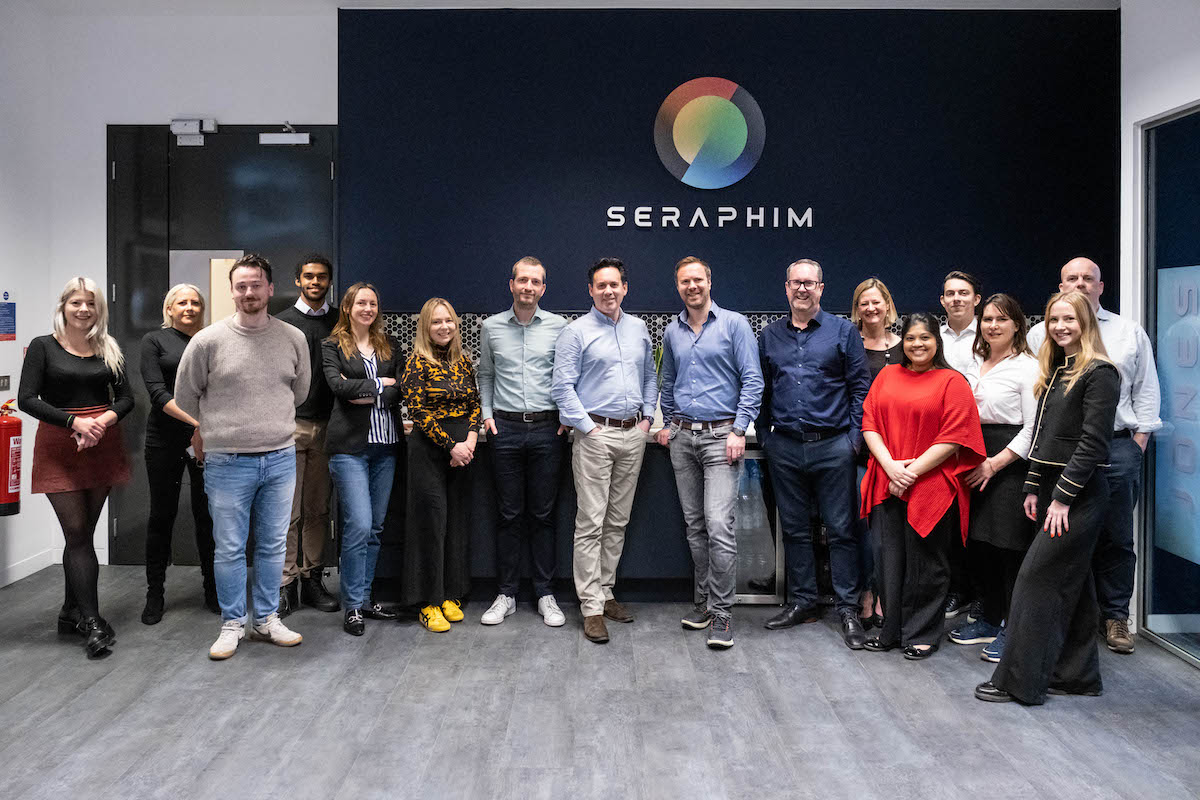Following its first close with limited partners including Eutelsat, the early stage fund will build a global portfolio of 30 startups that will be backed at the seed and Series A stages.
© 2024 TechCrunch. All rights reserved. For personal use only.
Seraphim Space, the UK-based space tech investment group is formally launching its second VC fund following its first close with limited partners including Eutelsat, TechCrunch learned exclusively. The early stage fund will build a global portfolio of 30 startups that will be backed at the seed and Series A stages.
CEO and manager Mark Boggett declined to disclose the percentage reached and fund’s targeted size, but said it should be larger than Seraphim Space’s 2017 £70 million VC fund (around $90 million at the time.)
Like its predecessor, Seraphim’s second VC fund, SSV II, is backed by major players from the aerospace sector looking to keep up with innovation.
This time around, Seraphim will also be operating in a busier and more competitive market.
Investors have become increasingly aware of space startups and the broader market, which could be worth $1.8 trillion by 2035, up from $630 billion in 2023, according to a recent report by the World Economic Forum and McKinsey. The number of funds willing to invest in space tech has increased compared to 2017, including both generalists and specialists such as Space Capital, SpaceFund, Starbridge Venture Capital and Starburst Aerospace.
Seraphim Space hopes to stand out with its track record.Its first fund returned three times the original investment, which helped dispel the cliché that space investment is “super high risk and super long term,” Boggett said.
Returns from its last fund were partly fueled by five exits — the trade sale of chip company UltraSoC to Siemens and four IPOs: Arqit, AST SpaceMobile, Nightingale and Spire Global.
However, today’s public market is a different world compared to 2021, especially for tech listings. This affects both Seraphim Space’s portfolio companies that went public and the investment group itself.
The firm’s growth fund Seraphim Space Investment Trust (SSIT) listed on the London Stock Exchange in July 2021 with £250 million in gross proceeds (some $300 million at the time.) After an all-time low in July 2023, its market cap is now £130 million, or $162 million, despite the fact that SSTI’s largest holding, ICEYE, became EBITDA profitable last year.
These market conditions forced the cash-strapped SSTI to focus on follow-on investments rather than new deals, and suggested that getting funding through the LSE for early-stage, non-profitable bets would be even harder.
“With VC funds, we’re able to make mistakes and have failures and high levels of risk over a longer period of time than the public market is comfortable with,” Boggett told TechCrunch. And while it didn’t help that SSIT was trading at a markdown, its existence has been helpful in other ways.
Through an approach known as a warehouse arrangement, SSIT funded the nine investments that SSV II already made before its first close. This helped show prospective limited partners that its investment thesis goes beyond what space is usually conflated with such as. launching rockets and satellites.
The market growth anticipated by the World Economic Forum reflects that space tech has applications in other industries.
“All of the big trends that are underway are really being enhanced by space,” Boggett said, likening it to AI in the sense that “it’s really an enhancing capability, a facilitating capability for every other sector.”
The application of AI to space data is one of main themes SSV II will invest in. In fact, it already has done so by backing insurtech startup Delos and carbon credit verification platform Renoster. Both companies use large troves of data and modeling to address issues related to climate change.
Seraphim Space’s enthusiasm for companies like Delos is two-fold: the tech could have a real impact beyond monitoring and they have the potential for high valuations (and returns).
“They’re addressing some of the biggest problems that we are faced with.”
The fund’s third area of focus will be in-orbit computing. It sounds a bit more abstract, but also has the potential to have an impact on sectors such as agriculture and infrastructure. For instance, this category includes Aethero, a company that develops edge computers that would eventually support autonomous decision-making on orbit.
SSV II is also targeting space-enabled communications, with one portfolio company so far: Hubble Network, which wants to connect a billion devices through a space-based Bluetooth network. Its CEO, Alex Haro, knows a thing or two about locators: He previously co-founded Life360, which acquired Tile in 2021.
SSV II’s fourth theme, microgravity for science, reminded us of a company outside of its portfolio: Varda Space Industries, which is making orbital drug manufacturing a reality, and raised a $90 million Series B round a few weeks after its first capsule returned from orbit. Biopharma aside, other applications include research around new materials, Boggett said.
Defense isn’t highlighted as an investment theme, despite its recent tailwinds among funds, but Boggett acknowledged its ubiquity in space tech.
“The vast majority of space companies are dual use companies,” he said. But, he quickly added, “the bigger market opportunity is in the commercial market as they move into the broader underlying sectors.”
This story has been updated to correct that Airbus didn’t participate in the first close; Eutelsat did.

Leave a Reply